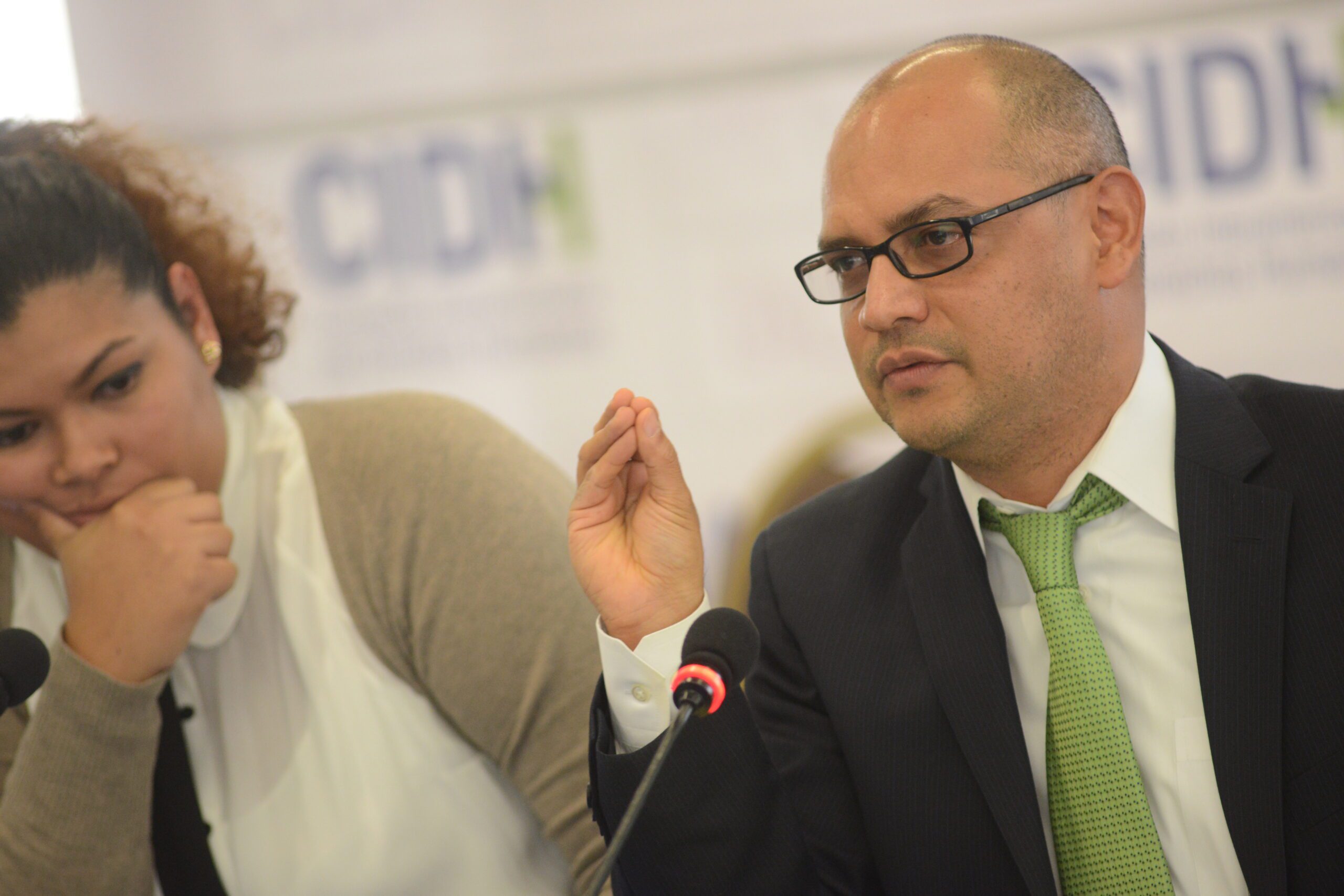Thematic Hearing Before the Inter-American Commission on Human Rights on the Situation of Afro-Costa Ricans
Photo courtesy of OAS photographer Daniel Cima, licensed under CC BY 2.0. Washington DC, Friday, October 23rd 2015 Carlos Quesada of the Institute on Race, Equality and Human Rights, in […]

Photo courtesy of OAS photographer Daniel Cima, licensed under CC BY 2.0.
Washington DC, Friday, October 23rd 2015
Carlos Quesada of the Institute on Race, Equality and Human Rights, in conjunction with Costa Rican co-petitioner Catherine McKinley of the Asociación para el Desarrollo de las Mujeres Negras Costarricences (the Association for the Development of Costa Rican Black Women), in representation of the Afro-Costa Rican groups the Unión Afrodescendiente Asesora (the Afro-Descendant Advisory Union) and the Red Nacional de Jóvenes Afrocostarricenses (the National Network of Afro-Costa Rican Youth), participated in a thematic hearing before the Inter-American Commission on Human Rights in order to present to the Commission a current overview of the challenges facing Afro-Costa Ricans.
Catherine McKinley presented information on the number of Afro-Costa Ricans from the latest 2011 National Census, noting that at least 8 percent of the Costa Rican population, or around 330,000 people, are Afro-descendant.
McKinley also made clear that the Afro-Costa Rican population still faces significant obstacles to the full exercise of their rights, saying that in Costa Rica, “racism is deep-rooted and structural, and it is an issue that demands immediate, sustained, strategic and programmed actions on the part of the Costa Rican government.”
McKinley spoke of some of the social and economic challenges disproportionately affecting Afro-Costa Ricans. She presented data that showed Afro-Costa Ricans have higher indices of Unmet Basic Needs, at 34.1% compared to the national average of 27.4%. Afro-Costa Ricans also have lower high-school completion rates, at 53.5% compared to the 57.8% national average. Alarmingly, McKinley also noted that up to 1 in 5 Afro-Costa Ricans do not have social security.
McKinley also testified to the hostile social environment faced by Afro-Costa Ricans, one that is amplified in social media, radio programming and in the news media. This animosity has been exemplified by the hostility toward Afro-Costa Ricans’ objections to the book Cocorí, a fictional story based on caricature grossly insulting to Afro-Costa Ricans that portrays blacks as ugly, unintelligent and dirty. Despite objections from Afro-Costa Rican civil society for more than 20 years, Cocorí has been included in the national school curriculum for decades.
On behalf of the Afro-Costa Rican civil society organizations represented at the hearing, McKinley presented several recommendations to the Commission and the Costa Rican government, including the following:
That the Commission should visit Costa Rica in order to verify the denunciations made during the thematic hearing.
That the government of Costa Rica accelerate ratification of the Inter-American Convention against Racism, Racial Discrimination and Related Forms of Intolerance currently on the legislative agenda.
That the Commission recommend to the Costa Rican government the removal the book Cocorí from the official reading school reading list.
Officials from the Ministry of Foreign Affairs and Worship as well as from the Presidential Commission on Afro-Descendant Affairs attended the hearing on behalf of the Costa Rican government. In their testimony before the Commission, the representatives affirmed that it was not their intention to “defend the book Cocorí.” The officials underlined the government’s recent recognition of Costa Rica as a multiethnic and multicultural society, although one where there still exists “indirect and structural racism and racial discrimination.”
The Commissioners present manifested their concern over the current situation of Afro-Costa Ricans, inquiring about affirmative actions by the Costa Rican government, as well as the necessary budget of the Presidential Commission on Afro-Descendant Affairs. Commissioner Rose-Marie Belle Antoine expressed her “satisfaction that the State recognizes that there is in fact structural discrimination in the country.” Regarding the use of Cocorí in the public education curriculum, Commissioner Antoine noted that Cocorí is “an important symptom of a wider problem.” Commissioner Felipe González noted that, in regards to removing Cocorí from public education, “[concrete] actions must be taken, even if they not popular, when these actions will secure basic rights.”
To access video of the thematic hearing, use this link to visit the website of the Inter-American Commission on Human Rights:
http://www.oas.org/es/cidh/multimedia/sesiones/156/default.asp

